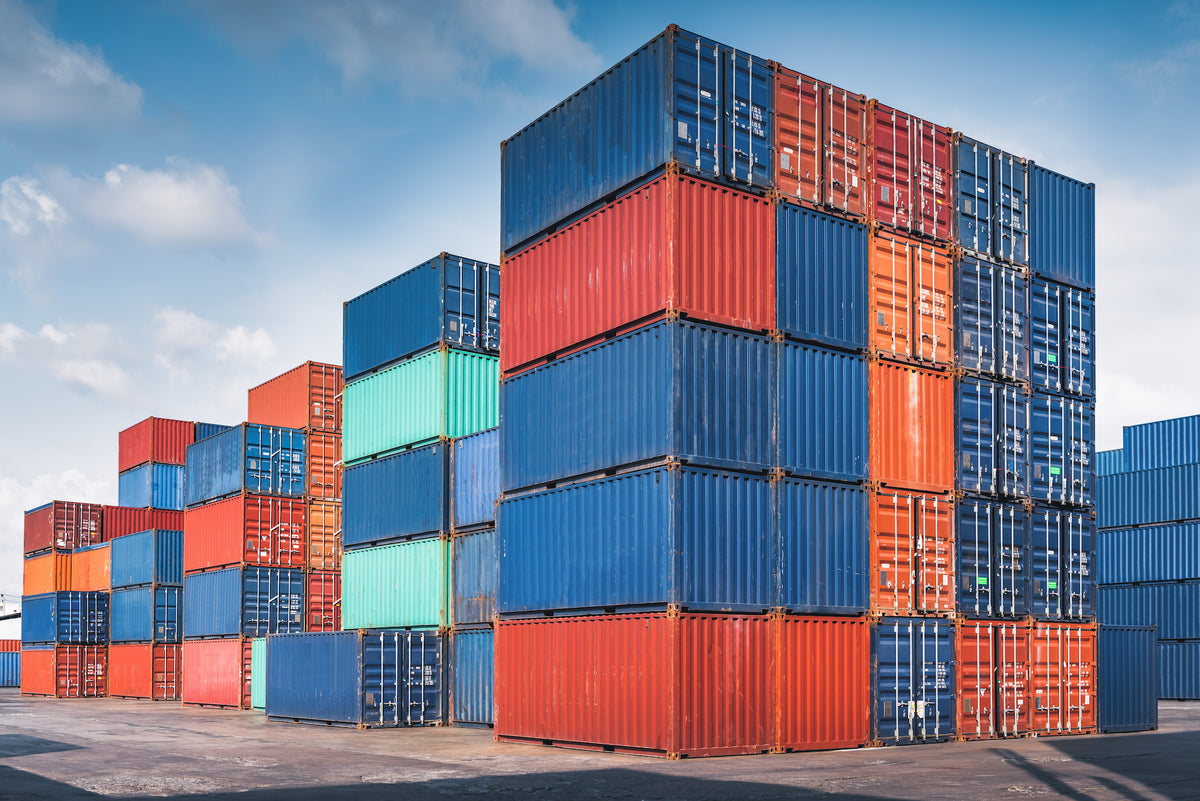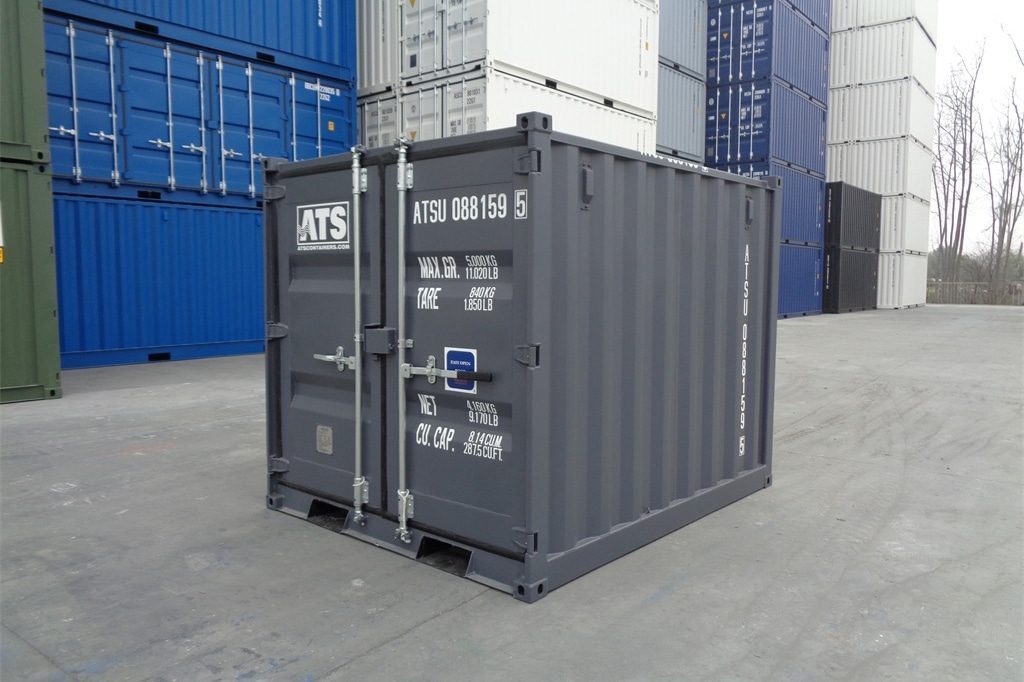What makes a sea can for sale practical for small businesses?
Wiki Article
Everything You Need to Find Out About Shipping Containers and Their Practical Applications
Shipping containers have actually developed from mere tools for transport to versatile frameworks with numerous useful applications. Their durable design and typical sizing make them optimal for a variety of uses past delivery. From innovative real estate remedies to sustainable farming, their flexibility is notable. Yet, the opportunities do not finish there. Exploring their numerous features reveals shocking understandings into imaginative solutions and contemporary challenges. What other roles could these containers play in today's world?The Style and Structure of Shipping Containers

Internally, containers are made to make best use of room, commonly featuring wood or steel flooring that can support considerable weight. Air flow systems might be included to avoid dampness build-up, which is essential for sensitive cargo. Additionally, reinforced corners enable very easy handling by forklifts and cranes, helping with smooth loading and discharging. This thoughtful design and framework add to the containers' convenience across different delivery and storage space applications.
Advantages of Utilizing Shipping Containers
While numerous transport methods have their benefits, using delivery containers stands out because of their unparalleled convenience and performance. Shipping containers supply a standard size, making them easy to deliver and stack throughout different modes of transport, including trains, vehicles, and ships. This standardization minimizes packing and dumping times, thereby increasing total productivity.Moreover, shipping containers are built from sturdy materials, offering durable protection for products throughout transit. They are secure and weather-resistant, reducing the danger of damages from environmental variables or theft. Additionally, the modular design of shipping containers permits simple personalization, allowing organizations to adapt them for different functions, such as storage or mobile workplaces.
Their mobility and cost-effectiveness make delivery containers an attractive alternative for organizations looking to enhance logistics and supply chain operations. These benefits contribute to the expanding popularity of delivery containers in different sectors.
Innovative Real Estate Solutions With Shipping Containers
Ingenious real estate options have become an amazing application of shipping containers, leveraging their fundamental strengths for domestic use. These flexible frameworks use a sustainable alternative to typical building materials, often at a fraction of the expense. Designers and architects have transformed containers into fashionable, functional homes, satisfying diverse way of lives and preferences.

Shipping containers are eco pleasant, advertising recycling and minimizing waste. Several jobs focus on power efficiency, incorporating photovoltaic panels and environment-friendly roofings. As urbanization increases, these innovative real estate options present a sensible reaction to housing scarcities while promoting an unique architectural visual.
Shipping Containers in Retail and Pop-Up Shops
A growing variety of retailers are turning to delivering containers as a dynamic solution for retail areas and pop-up shops. These functional structures provide a cost-efficient choice to traditional shops, permitting services to develop distinct, appealing atmospheres that bring in clients. Their modular layout allows simple transport and setup, making them optimal for seasonal or short-term retail locations.Retailers can customize delivery containers to reflect their brand name identity, changing them right into visually appealing stores that stick out in jampacked industries. The compact nature of containers also encourages reliable use room, permitting imaginative designs that optimize client circulation and involvement. Shipping containers can be situated in non-traditional locations, such as metropolitan parks or vacant great deals, increasing availability and foot website traffic.

As the retail landscape advances, delivering containers offer a cutting-edge and versatile solution that fulfills the needs of contemporary consumers while boosting the purchasing experience.
Sustainable Farming Practices Making Use Of Shipping Containers
Sustainable farming practices progressively integrate shipping containers as innovative remedies for farming - shipping container storage. These container ranches use hydroponics to make the most of space and source efficiency, supplying a cost-effective strategy to food production. By changing shipping containers right into farming hubs, farmers can address food safety and security and ecological problems simultaneouslyContainer Farming Perks
While typical agriculture deals with challenges such as land shortage and climate modification, container farming presents a practical alternative that makes best use of area and resources. This cutting-edge method enables year-round crop production in regulated settings, decreasing dependence on climate condition. Container ranches make use of much less water than traditional farming, promoting sustainability and preservation. They can be developed in metropolitan locations, bringing fresh fruit and vegetables closer to customers and minimizing transport discharges. In addition, the modular nature of delivery containers makes it possible for scalability, enabling farmers to change operations based on demand. Container farming likewise reduces pesticide usage by developing an enclosed ecosystem, eventually improving food safety. As metropolitan populations expand, container farming becomes a sensible service to fulfill the enhancing demand for local, lasting food sources.Hydroponics in Containers
Hydroponics, which allows plants to grow without dirt by utilizing nutrient-rich water, grows within the confines of shipping containers, making it an excellent method for urban farming. These containers produce a regulated environment that optimizes moisture, temperature level, and light, making it possible for year-round farming. With minimal room in metropolitan locations, delivering containers provide a scalable service for expanding fresh produce. Hydroponic systems within containers can include numerous strategies, such as nutrient film method (NFT) and deep water culture (DWC), which make best use of return while reducing water use. This ingenious approach not just improves food security however also reduces the carbon footprint related to typical farming techniques. Subsequently, hydroponics in containers represents a forward-thinking option for sustainable city food manufacturing.Economical Farming Solutions
As food manufacturing encounters raising difficulties because of environment modification and urbanization, shipping containers arise as a cost-effective remedy for farming. These functional frameworks can be repurposed for different lasting farming practices, such as hydroponics and vertical farming. By making use of controlled atmospheres within containers, farmers can optimize development cycles and reduce resource usage, including water and fertilizers. Furthermore, delivering containers can be purposefully put in city areas, lessening transportation costs and improving access to fresh fruit and vegetables. Their modular nature permits scalability, enabling farmers to broaden operations as demand grows. Repurposing containers adds to squander reduction, straightening with eco-friendly farming initiatives. In general, shipping containers existing innovative possibilities for reliable and sustainable food production.Emergency and Disaster Alleviation Applications of Shipping Containers

Organizations often make use of delivery containers to develop mobile clinics or field healthcare facilities, ensuring that treatment gets to those in need. In addition, they can be changed right into command centers for working with rescue operations, therefore improving business performance during crises.
Moreover, containers can be customized to keep important products such as food, water, and clothes, protecting products up until they are distributed. Their mobility allows them to be conveniently delivered to numerous locations, making certain that help shows up where it is most quickly required. Generally, shipping containers play a critical function in enhancing the efficiency of disaster relief campaigns worldwide.
Regularly Asked Concerns
Just How Are Shipping Containers Transported From One Location to One More?
Shipping containers are transported through vehicles, ships, and trains, using cranes for discharging and filling. This multi-modal transport system guarantees efficient movement across land and sea, linking international supply chains and helping with worldwide profession.What Is the Typical Life-span of a Shipping Container?
The average life expectancy of a shipping container generally varies from 10 to 25 years, depending upon upkeep, use, and environmental factors. Appropriate care can prolong their functionality, while forget might result in deterioration and damages.Can Shipping Containers Be Modified for Various Usages?
Yes, shipping containers can be changed for numerous usages. They function as homes, offices, pop-up stores, and storage systems. Their flexibility permits innovative adjustments, making them ideal for a wide variety of applications.Are Shipping Containers Eco-friendly?
Shipping containers can be environmentally pleasant, as they advertise recycling and repurposing. Their sturdiness reduces waste, while their use in alternative housing and businesses decreases the demand for brand-new products, adding to sustainable techniques.Exactly how Do I Choose the Right Dimension Shipping Container?
To select the appropriate size shipping container, one should examine storage space demands, consider the intended usage, and assess area availability - Shipping Containers for Sale. Typical sizes include 20-foot and 40-foot containers, each serving various storage space and transportation needs effectively
Cutting-edge housing remedies have emerged as an exciting application of delivery containers, leveraging their intrinsic toughness for household usage. The flexibility of shipping containers enables for creative designs, from single-unit homes to complex multi-container plans. Sustainable farming practices significantly integrate shipping containers as cutting-edge solutions for agriculture. Additionally, the modular nature of shipping containers enables scalability, enabling farmers to readjust operations based on demand. Hydroponics, which permits plants to grow without soil by making use of nutrient-rich water, flourishes within the confines of shipping containers, making it an optimal method for urban farming.
Report this wiki page